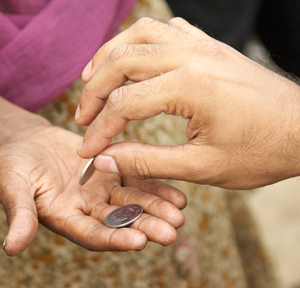Compliance
OECD Tells Chile To Do More Against Bribery, Says South Africa Must Act Urgently

The OECD says Chile has progressed in the fight against bribery but the country must do more to and punish such offences. Separately, it bluntly warned South Africa to crack down on bribery and protect whistleblowers.
The Organisation For Economic Co-operation and Development says
Chile has progressed in the fight against bribery, but the
country must do more to detect and punish such offences.
Separately, it bluntly warned South Africa to crack down on
bribery and protect whistleblowers.
In a report by the OECD Working Group on Bribery, the
Paris-headquartered club of nations assessed the South American
country’s performance in stamping out bribery, an issue that
continues to be an important problem around the world, and a
matter for wealth managers to watch.
“Chile has made positive efforts to implement the Convention, but
there has not been a single foreign bribery conviction. Chile did
not sufficiently investigate several of the six foreign bribery
allegations that have surfaced since 2001. Chilean embassies
failed to alert prosecutors to these cases which were widely
reported in the foreign media. Only one of the cases has been
detected through domestic sources. Chile should improve its
investigative and detection efforts,” the OECD said in a
statement.
The OECD recommended that Chile clarifies its corporate liability
law and the system for certifying corporate offence prevention
models; improve co-ordination and intelligence gathering; raise
awareness that prosecutors and police in foreign bribery cases
should not be influenced by economic, diplomatic and other
inappropriate considerations; and ease bank secrecy protection
for foreign bribery investigations.
There are positive changes in Chile, the report said.
“Chile’s current efforts to improve its implementation of the
Convention through proposed Penal Code reform are welcomed. Chile
has also improved its foreign bribery offence, and introduced
corporate liability and nationality jurisdiction to prosecute,”
it said.
It continued: “Efforts to raise awareness of foreign bribery
appear successful. Many Chilean companies have put in place
certain measures to address foreign bribery, though some of these
may not meet best practices and international standards. Chile
has also taken steps to protect whistleblowers though more could
be done, particularly in the private sector.”
The Working Group on Bribery is composed the 34 OECD Member
countries plus Argentina, Brazil, Bulgaria, Colombia, Latvia,
Russia and South Africa.
South Africa
While South Africa is a member of the Working Party, the OECD
went on to issue a sharp warning to the country about its own
bribery controls.
“South Africa must take urgent steps to proactively investigate
and prosecute foreign bribery. No foreign bribery cases have been
prosecuted since South Africa joined the Convention in 2007. The
4 on-going investigations – out of only 10 allegations that have
surfaced to date – are also far from reaching the prosecution
stage,” the report said.
“The need for enforcement is imperative, especially as South
African companies are increasingly operating abroad, often in
sectors with a high risk of foreign bribery. There are also
serious concerns that prosecutions may be hampered by political
and economic considerations,” it continued.
The OECD recommend steps such as to significantly increase South
Africa’s efforts to proactively detect, investigate and prosecute
foreign bribery; ensure that national economic interests and the
identities of the natural or legal persons involved do not
influence the investigation or prosecution of foreign bribery
cases; increase the financial resources available to law
enforcement authorities and ensuring enhanced cooperation and
coordination between the police and prosecutors; and urgently
ensure and raise awareness that people who report suspected acts
of foreign bribery are in practice afforded the protections
guaranteed by the law, including those in the auditing
profession.